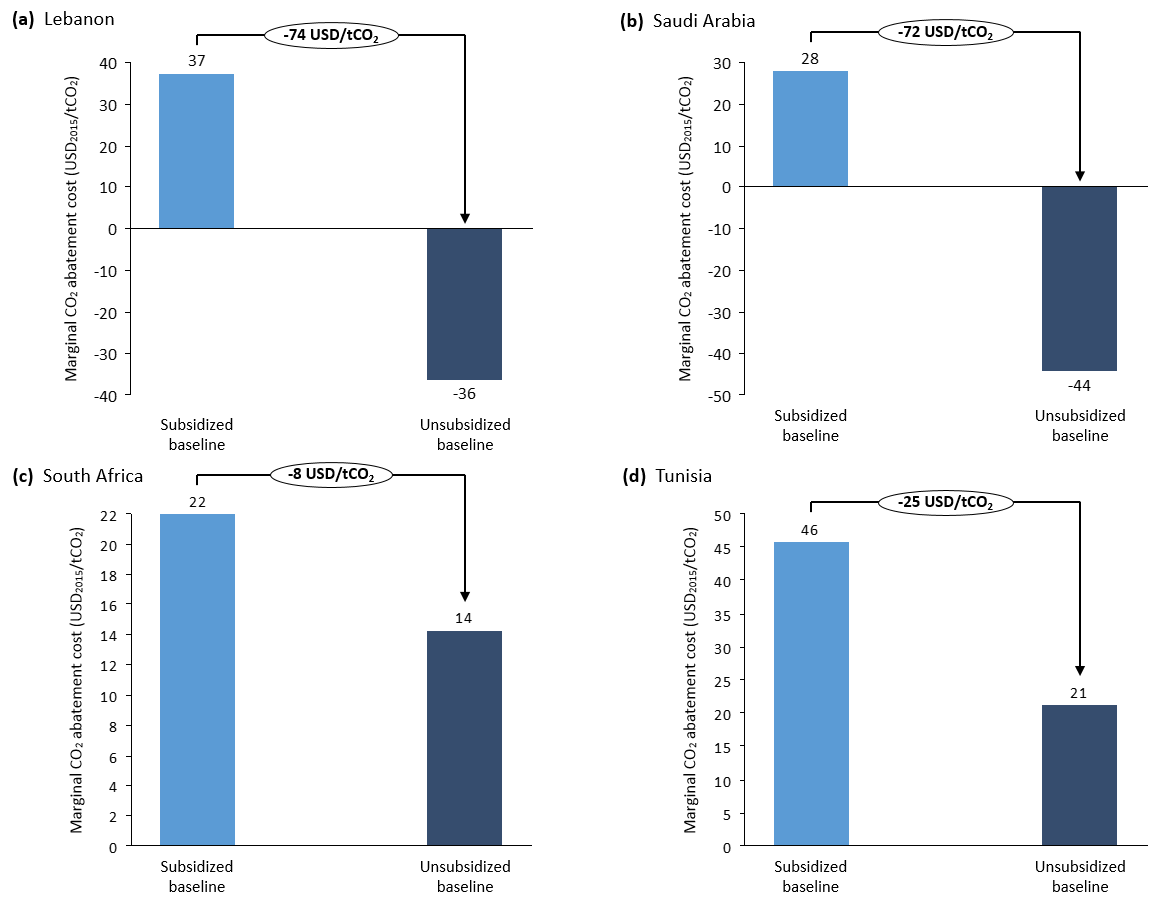Phasing out fossil fuel subsidies through policy combinations
Fossil fuel subsidies have major economic and environmental downsides. ETH Zurich’s Energy Politics Group (EPG) aims at identifying strategies that can overcome the political, economic and technological lock-in that make subsidy reform so difficult.
Estimates of annual subsidies for fossil fuel consumption range from 300-500 billion USD – a sum that surpasses both the value of all existing carbon pricing schemes as well as annual subsidies for low-carbon energy technologies. Aside from their purely fiscal detriment to public budgets, fossil fuel subsidies also artificially distort the competitiveness of clean technologies, such as renewable energy technologies (see Figure 1).
While the economic arguments for subsidy removal are largely undisputed, the politics of subsidy reform are more complicated. Powerful interest groups and public opposition often deter or result in backsliding on reform attempts. In EPG’s research, we extend the classic view on subsidy reform, arguing that the underlying energy system needs more consideration. Ultimately, it is this system that generates the economic and political rents that make fossil fuel subsidy reform difficult and short-lived. Our research suggests that combining fossil fuel reform with technology policies that incentivize investments in new, fossil-fuel free technologies can break the political lock-in of fossil fuel subsidies. Deploying these low-carbon technologies entails more than just mitigating emissions: they can break up monopolistic structures, spur new industrial activity, create jobs, foster the formation of “green” coalitions, and, ultimately, alter the political balance of interests in subsidy debates.

Source of figure:
Matsuo, T. and Schmidt, T.S., 2017. Hybridizing low-carbon technology deployment policy and fossil fuel subsidy reform: a climate finance perspective. Environmental Research Letters, 12(1), p.014002. link: external page http://iopscience.iop.org/article/10.1088/1748-9326/aa5384/meta
Note: EPG’s research on subsidy reform is financially supported by the Swiss National Science Foundation (SNF, project number PYAPP1_166905).
The responsible researchers for this project are Prof. Tobias Schmidt and Tyeler Matsuo. Prof. Tobias Schmidt is an ESC member and head of the Energy Politics Group (EPG).
The EPG is based at ETH Zurich's Department of Humanities, Social and Political Sciences (D-GESS) and is affiliated with the Energy Science Center (ESC) and the Institue of Science, Technology and Policy (ISTP).The research and teaching of the Energy Politics Group focuses on governance questions related to technological change in the energy sector.